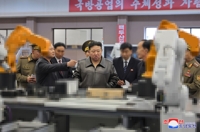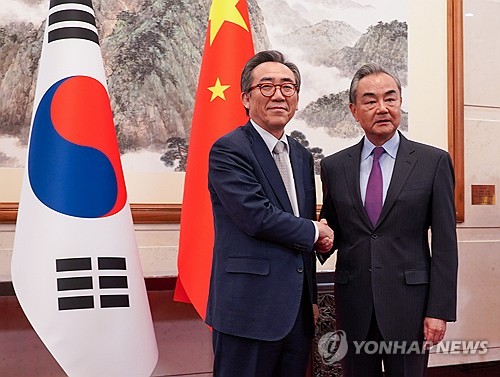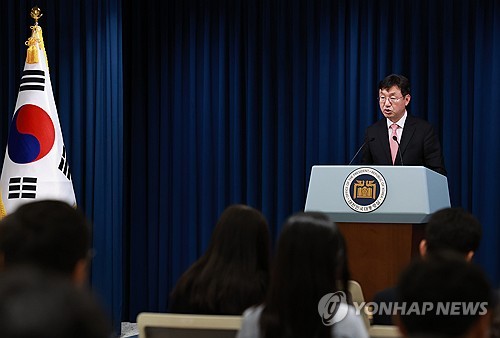(News Focus) S. Korea to brace for Brexit fallout in short term
By Kim Boram
SEJONG, June 24 (Yonhap) -- South Korea will likely be roiled by financial turmoil sparked by Brexit in the short term but soon regain stability in the long term, analysts here said Friday.
The global financial market has been rattled for months in the face of the landmark British referendum as investors are worried about its impact on the future of the world's single largest economic bloc.
On the day of decision, vote results showed a 52-48 percent split for leaving, and the Britons' choice to leave the EU hammered equity markets across the world, sending the British pound and other major currencies into freefall.
South Korea was not an exception.
The benchmark KOSPI sank 3.09 percent, the steepest daily loss in over four years, to finish at 1,925.24 points, while the secondary KOSDAQ slumped 4.76 percent to 647.6 points. Earlier in the day, the bourse operator halted trading of the KOSDAQ as the market sharply lost ground.
The South Korean won lost 29.7 won to close at 1,179.9 won against the U.S. dollar, marking the largest daily fall in nearly five years.
Analysts said the impact of Brexit on the South Korean financial market will be limited in the short haul as the country's exposure to Britain, the world's fifth-largest economy, is very limited.
"The South Korean economy is scarcely connected with the British economy," said Jung Kyu-chul, a researcher at the Korea Development Institute (KDI). "The financial turmoil will be less likely to spill over to the real economy."
He said the KDI did not consider the Brexit as a major factor that could drag down the South Korean economy in its latest report in which the state-run think tank cut its 2016 growth target to 2.6 percent from 3 percent.
The immediate financial turbulence is a result of escalated uncertainties with many investors who had anticipated that the "remain" side would win the race, the researcher noted.
Joo Won, a Hyundai Research Institute senior fellow, also said that the Brexit issue will wield its influence on the South Korean economy for a week at most.
"The global financial market fell into the doldrums. The British pound tumbled but safe-harbor assets like the U.S. dollar and the Japanese yen moved up," said Joo.
"The South Korean financial market is being hit hard by the shockwave due to its high percentage of foreign investment. But it will soon stabilize in a week or just two or three days."
Foreigners held some 30 percent of South Korean shares on the KOSPI bourse, with British investment accounting for 8 percent of total foreign ownership.
But the economist said it is necessary to tighten monitoring of the stock and bond markets to deal with a possible sudden outflow of foreign capital.
In terms of trade, moreover, the British portion of the South Korean economy will drop further down.
South Korea's exports to Britain totaled US$7.39 billion last year, taking up just 1.4 percent of the country's total outbound shipments.
"The British decision to leave the EU is the biggest threat to the world economy, but it will have a limited impact on the South Korean economy in the near term," the trade ministry said in a release.
However, some experts warned that Britain's break-off from the EU will slow down the world economy in the longer term, dampening global demand and trade.
"Europe and the United States will be directly affected by the British withdrawal from the EU, and then South Korea will face a secondhand effect from it," said Prof. Kim Kwang-seok from Hanyang University.
"A rapider slowdown in the global economy will weigh heavily on the South Korean economy."
He said uncertainties will hang over the world economy further as the Brexit might provoke new rounds of exits in the coming future.
brk@yna.co.kr
(END)
-
 BTS' RM to prerelease 'Come Back to Me,' music video directed by Lee Jung-jin of 'Beef'
BTS' RM to prerelease 'Come Back to Me,' music video directed by Lee Jung-jin of 'Beef' -
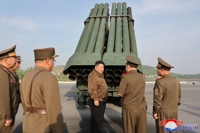 NIS looking into N. Korea's suspected provision of weapons to Russia
NIS looking into N. Korea's suspected provision of weapons to Russia -
 (Yonhap Interview) Kang Kang-hoon's portrait saga: life seen through his daughter, cotton
(Yonhap Interview) Kang Kang-hoon's portrait saga: life seen through his daughter, cotton -
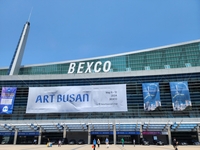 Sneak peek of Art Busan shows strong emphasis on female trailblazers
Sneak peek of Art Busan shows strong emphasis on female trailblazers -
 Disney+ 'Uncle Samsik' aims to provoke thought with ambitious characters in turbulent times
Disney+ 'Uncle Samsik' aims to provoke thought with ambitious characters in turbulent times
-
 BTS' RM to prerelease 'Come Back to Me,' music video directed by Lee Jung-jin of 'Beef'
BTS' RM to prerelease 'Come Back to Me,' music video directed by Lee Jung-jin of 'Beef' -
 (Yonhap Interview) Kang Kang-hoon's portrait saga: life seen through his daughter, cotton
(Yonhap Interview) Kang Kang-hoon's portrait saga: life seen through his daughter, cotton -
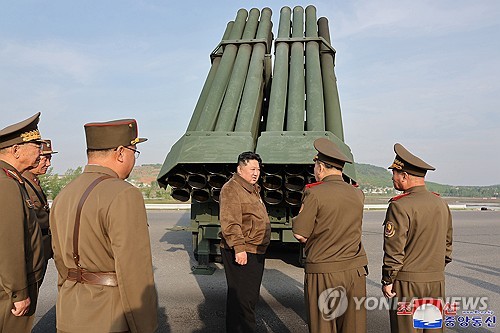 NIS looking into N. Korea's suspected provision of weapons to Russia
NIS looking into N. Korea's suspected provision of weapons to Russia -
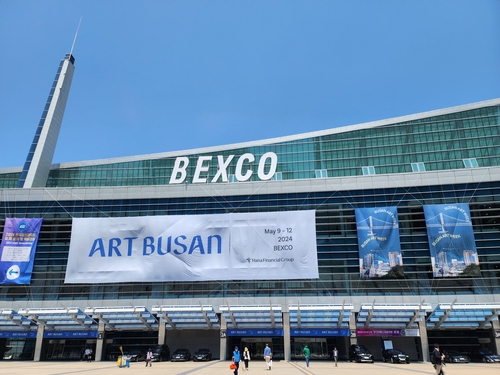 Sneak peek of Art Busan shows strong emphasis on female trailblazers
Sneak peek of Art Busan shows strong emphasis on female trailblazers -
 Disney+ 'Uncle Samsik' aims to provoke thought with ambitious characters in turbulent times
Disney+ 'Uncle Samsik' aims to provoke thought with ambitious characters in turbulent times
-
 NIS looking into N. Korea's suspected provision of weapons to Russia
NIS looking into N. Korea's suspected provision of weapons to Russia -
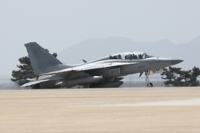 S. Korea, Malaysia discuss arms industry cooperation in Kuala Lumpur
S. Korea, Malaysia discuss arms industry cooperation in Kuala Lumpur -
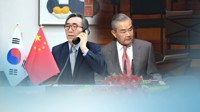 Top diplomats of S. Korea, China set to hold talks on bilateral ties, N. Korea
Top diplomats of S. Korea, China set to hold talks on bilateral ties, N. Korea -
 F-4 fighter jets hold farewell flight after over five decades of service
F-4 fighter jets hold farewell flight after over five decades of service -
 N. Korean defectors send balloons carrying anti-Pyongyang leaflets to North
N. Korean defectors send balloons carrying anti-Pyongyang leaflets to North















